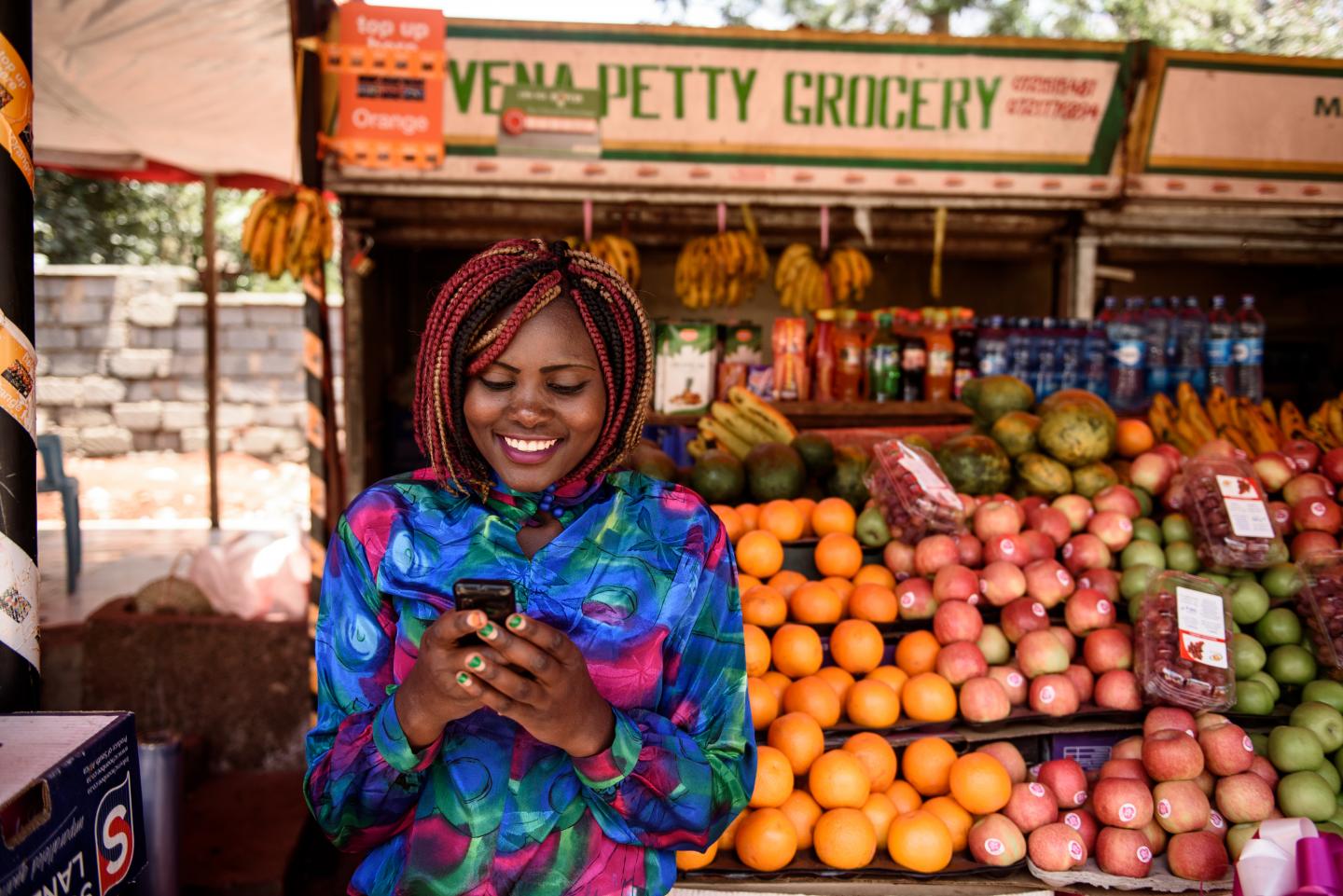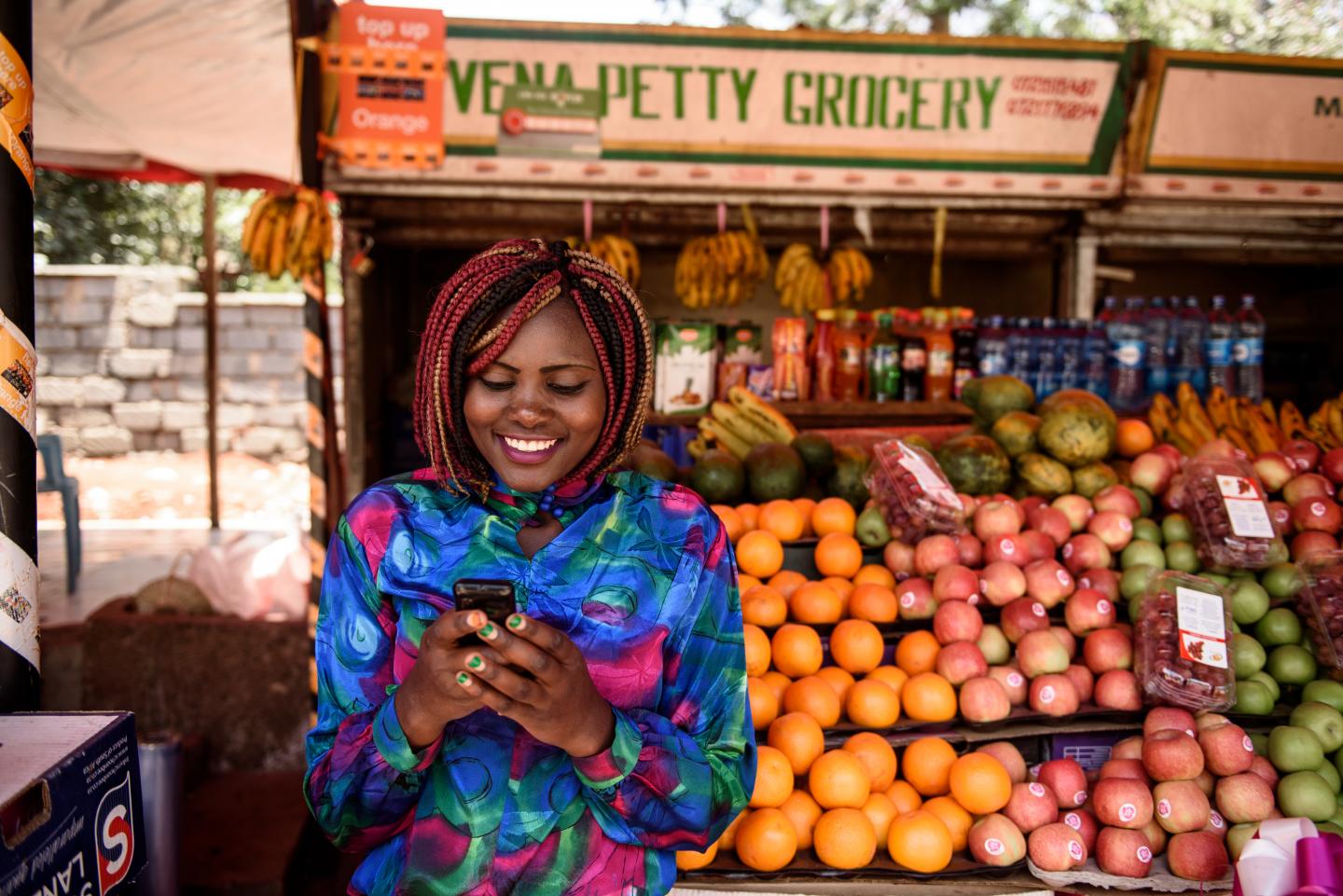
Credit: Intersect
New Haven, CT, Dec. 8 – A new study today shows that the expansion of mobile money helped bring hundreds of thousands of Kenyans out poverty, especially those in female-headed households. The study, published in Science, examined how M-PESA, Kenya's text message-based payments system, spread across the country over six years. The researchers tracked the economic progress of thousands of households and estimate that the expansion of M-PESA lifted 194,000 households, or two percent of households in the country, above the poverty line, and that these effects were partly driven by women's access to the new way of sending and receiving money.
M-PESA, introduced in Kenya in 2007, now reaches 96 percent of the country's households. Because it uses simple SMS messages (not requiring a smartphone) to send money, and cash can be deposited or withdrawn from local agents (for example, at a nearby shop), the service does not require an extensive bank infrastructure and reaches even remote rural areas. Economists Tavneet Suri, Associate Professor of Applied Economics at MIT's Sloan School of Business and Billy Jack, Professor of Economics at Georgetown University, worked with the research and policy non-profit Innovations for Poverty Action to study households across much of the country as the network of agents expanded into new localities. The study was funded by the Bill & Melinda Gates Foundation and the organization Financial Sector Deepening Kenya.
"What we saw over six years was impressive — as people were given access to this low-cost means of sending and receiving cash, poverty, particularly extreme poverty, decreased, and especially for households headed by women," according to Suri. "We saw that when M-PESA came to an area, women shifted their occupations and their savings went up. We estimate that about 185,000 women shifted occupations from subsistence farming to business or retail sales.
Previous studies of programs thought to reduce poverty have had mixed results; for example, multiple studies have shown that microloans, while helpful business tools for a few, do not on average bring borrowers out of poverty. "Our earlier work on M-PESA showed that it improved financial resilience in Kenya – while households typically suffered falls in consumption of about 7 percent when hit by misfortune, M-PESA users were able to maintain normal consumption levels in the event of such unexpected setbacks," according to Jack, of Georgetown, "With this longer term data, we're confident that the proliferation of mobile money has also resulted in a reduction in poverty, especially in households headed by women."
The findings also add to a growing body of research on gender dynamics surrounding money in low-income countries. "Sometimes the poor, and poor women in particular, just need access to the right set of simple tools to help themselves, but we haven't always known what that the right set was," according to Annie Duflo, Executive Director of Innovations for Poverty Action. "Hopefully these results will inform and encourage the targeted scaling of mobile money services in other countries. While many other countries have a system, too few have the kind of nationwide infrastructure that now exists in Kenya."
###
Additional facts:
- M-PESA's name comes from M for "mobile" and Pesa, the Swahili word for "money"
- Kenya has 2,700 automated teller machines (ATMs) in the country providing access to traditional bank accounts, but 110,000 M-PESA agents where individuals can deposit or withdraw cash from their mobile money accounts.
- The study compared areas which had large increases in local M-PESA agents between 2008 and 2010 to those with small or no increases. The authors then examined differences in households' economic outcomes in these areas in 2014.
- The researchers conclude that an area with a 1 kilometer radius which six new M-PESA agents entered between 2008 and 2010 would have 22% fewer female-headed households living in extreme poverty than an area of the same size in which no new agents entered during the same time period (43.3 percent versus 34.1 percent of households living on less than $1.25 per day). However, there was no corresponding drop for male-headed households.
Innovations for Poverty Action (IPA) discovers and promotes effective solutions to global poverty problems. IPA designs, rigorously evaluates, and refines these solutions and their applications together with decision-makers to ensure that the evidence created is used to improve opportunities for the world's poor. In the 10 years since its founding IPA has worked with over 250 leading academics to conduct over 600 evaluations in 51 countries.
http://www.poverty-action.org
Media Contact
Jeffrey Mosenkis
[email protected]
203-672-9552
@poverty_action
http://www.poverty-action.org
############
Story Source: Materials provided by Scienmag





